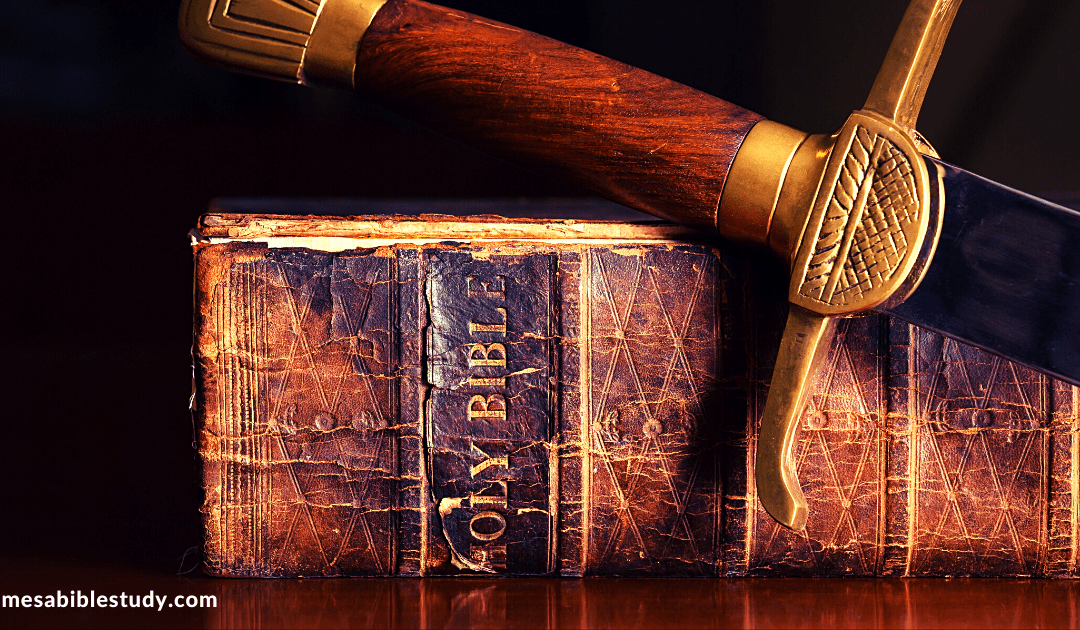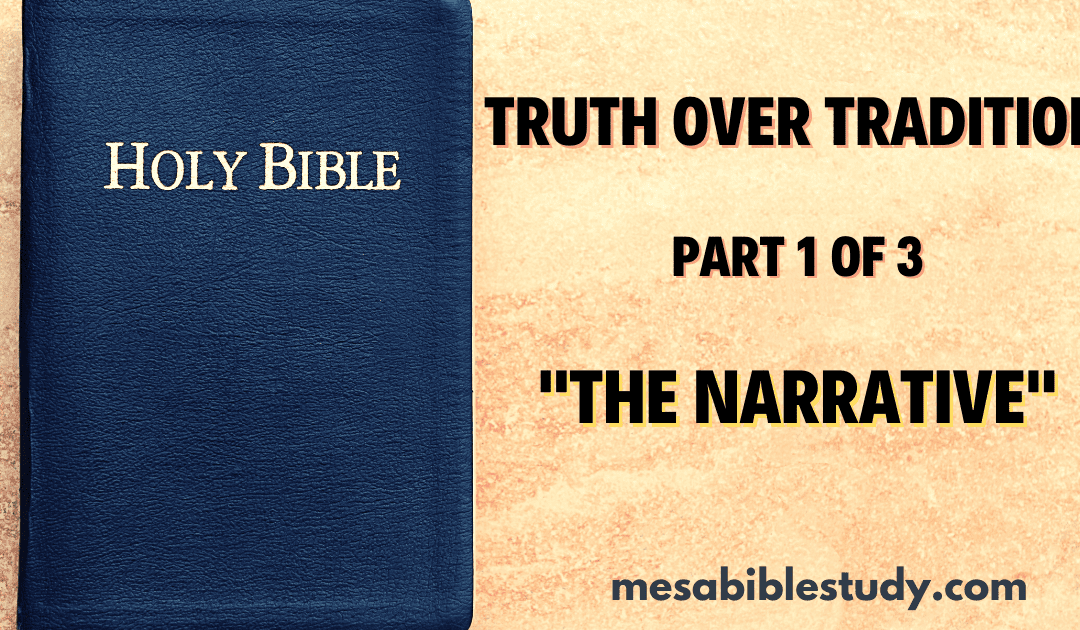
by Jamie Pantastico | Jan 22, 2023 | Daily Encouragement |
As Christians, it’s essential to make reading and studying the Bible a daily habit. The Bible is the living word of God, and it’s through it that we learn about God’s character, His love for us, and how we are to be a light in this dark and evil world.
To be a good bible student one must maintain a literal, grammatical and historical (in-time) hermeneutic. There has been much too much of man’s theology governing Scripture when it is God’s Word alone that reigns over theology.
‘Study to shew thyself approved unto God, a workman that needeth not to be ashamed, rightly dividing the word of truth.’
2 Timothy 2:15
Here are 10 encouraging verses that remind us of the importance of Bible study:
- 2 Timothy 3:16-17 reminds us that all scripture is God-breathed, useful for teaching, rebuking, correcting, and training in righteousness. So that the servant of God may be thoroughly equipped for every good work.
- Psalm 119:105 reminds us that the word of God is a lamp to our feet and a light for our path.
- Isaiah 34:16 encourages us to seek out of the book of the Lord, and read.
- James 1:22 reminds us to not only listen to the word but to do what it says.
- 1 Peter 2:2 reminds us that like newborn babies, we must crave pure spiritual milk, so that by it, we may grow up in our salvation.
- Colossians 3:16 reminds us to let the message of Christ dwell among us richly as we teach and admonish one another with all wisdom through psalms, hymns, and songs from the Spirit, singing to God with gratitude in our hearts.
- Proverbs 2:1-5 reminds us that if we accept God’s words and store up his commands within us, turning our ear to wisdom and applying our hearts to understanding, we will understand the fear of the Lord and find the knowledge of God.
- 2 Peter 3:18 reminds us to grow in the grace and knowledge of our Lord and Savior Jesus Christ.
- Psalm 1:2 reminds us that delighting in the law of the Lord and meditating on it day and night is the key to success.
- Isaiah 55:11 reminds us that God’s word will not return to Him empty, but it will accomplish what He purposes and succeed in the thing for which He sent it.
In conclusion, reading and studying the Bible is essential for our growth as Christians. It’s through the Bible that we learn about God’s character, His love for us, and how we are to live our daily lives. Make sure to set aside time every day to read and study the Bible, and you will strengthen your faith and daily walk through the wisdom and guidance it provides. The Bible is the living word of God, it should be our only source of wisdom, encouragement, and hope. Let’s make an effort to read and study the Bible regularly, so we can be equipped to face the challenges of life and grow in our faith.

by Jamie Pantastico | Jan 21, 2023 | Daily Encouragement |
Life is challenging and we all go through difficult times that can leave us feeling weak, heartbroken, and overwhelmed. But 2 Corinthians 12:9 reminds us that when we are weak, we are the strongest.
‘And He said to me, “My grace is sufficient for you, for My strength is made perfect in weakness.” Therefore most gladly I will rather boast in my infirmities, that the power of Christ may rest upon me. ‘
II Corinthians 12:9
God understands our weaknesses and limitations, and He wants to give us the strength we need to overcome them. He is always with us in our struggles and will give us the grace we need to keep going. Trust in Him and find your strength in Him.
The Apostle Paul also reminds us of this truth in 2 Corinthians 12:9, where he states that “My grace is sufficient for you, for my power is made perfect in weakness.” This verse shows us that when we are weak, God’s grace is sufficient for us, and His power (Holy Spirit) is made perfect in our weaknesses.
Additionally, In Philippians 4:13, Paul says that he can do all things through Christ who strengthens him, reminding us that Christ is the source of our strength and the one who empowers us to overcome our weaknesses.
Get Your Bible Out and Read – Study God’s Word
In times of weakness and struggles, let’s take out our Bibles, read these passages and trust in God and find strength in Him. God’s comfort, strengthening, and power are in His words. He is the source of grace and strength that empowers us to overcome our weaknesses. And through His grace and strength, we can face and overcome any challenges that come our way.

by Jamie Pantastico | Jan 20, 2023 | Daily Encouragement |
It can be difficult to approach God in times of need, but the Bible reminds us that we can approach God’s throne of grace BOLDLY and with confidence. God understands our weaknesses and temptations, and He offers us mercy and grace to help us in our time of need. Trust in Him, and you will find His grace sufficient to make it through anything you face. Let’s take a look at a powerful verse in Hebrews that makes it so clear.
‘For we do not have a High Priest who cannot sympathize with our weaknesses, but was in all points tempted as we are, yet without sin. Let us therefore come boldly to the throne of grace, that we may obtain mercy and find grace to help in time of need.’
Hebrews 4:15-16
The apostle Paul also reminds us of this truth in Romans 8:34: “Who is to condemn? Christ Jesus is the one who died—more than that, who was raised—who is at the right hand of God, who indeed is interceding for us.”
Additionally, in Ephesians 2:18, Paul says: “For through Him we both have access in one Spirit to the Father.”
These verses show us that we have access to the grace of God through faith in Jesus Christ and that Jesus, who died and rose again, is interceding for us at the right hand of God. We have access to the Father through the Spirit, and we can approach God’s throne boldly with confidence, knowing that Jesus is interceding for us.
Remember, we can approach God’s throne of grace boldly and with confidence, knowing that we have a High Priest who understands us and offers us mercy and grace. Let’s trust in him and find our help in him. Trusting in God and approaching Him, will bring peace and help in whatever troubling times we face.

by Jamie Pantastico | Jan 20, 2023 | Daily Encouragement |
Life can be tough, and we all face trials and tribulations that can leave us feeling overwhelmed and alone. But as believers in Jesus Christ, we can take comfort in knowing that we have a God who is the source of all comfort.
Get your Bible out and read this verse not once but several times. The power is in God’s words!
The apostle Paul reminds us of this truth in 2 Corinthians 1:3-7:
‘Blessed be the God and Father of our Lord Jesus Christ, the Father of mercies and God of all comfort, who comforts us in all our tribulation, that we may be able to comfort those who are in any trouble, with the comfort with which we ourselves are comforted by God. For as the sufferings of Christ abound in us, so our consolation also abounds through Christ. Now if we are afflicted, it is for your consolation and salvation, which is effective for enduring the same sufferings which we also suffer. Or if we are comforted, it is for your consolation and salvation. And our hope for you is steadfast, because we know that as you are partakers of the sufferings, so also you will partake of the consolation.’
The apostle Paul writes that God is the Father of compassion and the God of all comfort. He comforts us in all our troubles so that we can comfort others in the same way. This means that no matter what we may face in this life, we can have the assurance of God’s love and comfort in our lives. This is a powerful truth that can give us the strength and encouragement to face any obstacle or challenge that comes our way.
So, if you’re feeling overwhelmed or alone in your struggles, remember that you have a God who is the source of all comfort. He is with you in your trials and tribulations and will give you the strength and encouragement you need to keep going. Trust in him and find your comfort in him.
In conclusion, 2 Corinthians 1:3-7 teaches us that God is the Father of compassion and the God of all comfort. He comforts us in all our troubles so that we can comfort others in the same way. This means that no matter what we may face in this life, we can have the assurance of God’s love and comfort in our lives. So let’s trust in him and find our comfort in him. In turn, we can comfort others.

by Jamie Pantastico | Jan 20, 2023 | Daily Encouragement |
95% of Christendom Ascribe to the Narrative Below
Christendom’s traditional narrative is that John the Baptist comes on the scene to announce to the world that the King and kingdom are coming. Jesus Christ chooses 12 disciples, and they perform many miracles, preach the gospel, and baptize many people, building the church. Jesus then appoints Peter as the leader of the apostles and the church’s spokesman.
However, the Jewish leadership rejects Jesus’ claims, and, along with the Romans, they crucify the Lord. Jesus Christ is raised from the dead three days later, and the Lord commands the apostles to preach the gospel of grace to everyone, Jews and Gentiles, all over the world.
Around the same time, one of the Lord’s greatest enemies, Saul, is confronted and converted by Christ Himself while on the road to Damascus. Saul, now Paul, joins the other apostles, and together they start the great commission. They preach the gospel of grace, baptize, perform miracles, and grow the church.
95% of Christendom is Wrong
The popular narrative is erroneous for one clear reason: there is ABSOLUTELY NO Scripture support for it. This narrative is loaded with true statements, but the underlying message is erroneous and has led to division, confusion, and false teaching.




